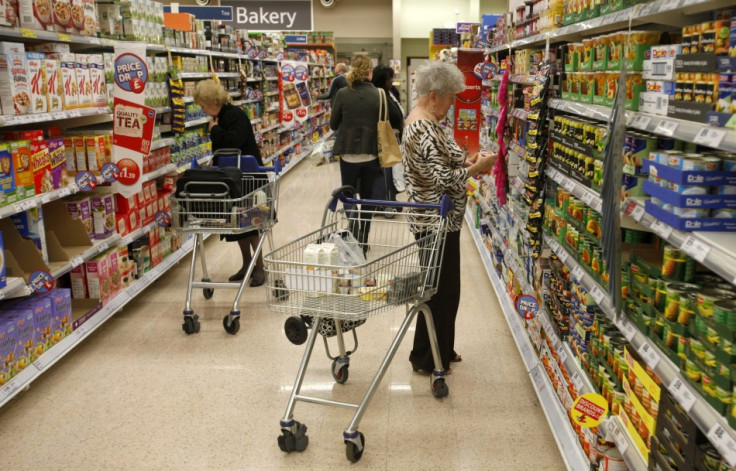UK shop prices see a 1.7% on-year decline in January, BRC says
This decline was greater than the 1.4% fall seen in December 2016.

British retail stores saw product prices register a 1.7% year-on-year decline in January, compared to the 1.4% decline seen in December 2016, according to the latest Shop Price Index published on Wednesday by the British Retail Consortium (BRC).
The index report by the UK-based trade association measures price changes in popular retail outlets in the country. These changes are widely followed as an indicator for inflationary pressures, with a high reading seen as positive for the sterling.
BRC said non-food deflation increased to 2.3% in the first month of 2017, while food deflation accelerated to 0.8%.
BRC also gave the price changes for fresh food and ambient food - those that have a larger shelf-life. It said fresh food saw price deflation at 1.2%, similar to the previous two months. On the other hand, prices of ambient foods had fallen 0.2% in January. This was in contrast to December when these prices had seen a marginal increase.
Helen Dickinson OBE, CEO at the Consortium said that consumers would benefit from this fall in prices. She added that these figures contradicted increasing cost pressures amid the fall in sterling and higher commodity prices.
The UK will inevitably start seeing an uptrend in inflation over 2017, she said.
According to Dickinson, food product prices rose in January, but were offset by discounting by retailers. "In fact month-on-month food prices were up, although the impact of this on inflationary pressure was offset by the discounting of excess stock by a number of non-food retailers after a tepid sales performance over the festive period," the CEO explained.
With regards to protecting consumers from this rise in prices, she said in a statement, "Retailers' focus will be on protecting their customers from the effects of increasing input costs, but with the cost of doing business rising and margins and profits being squeezed, their efforts will require the support of public policies that help them keep prices low for shoppers. This means capping the annual uplifts in business rates and ensuring no new tariffs remains a core objective of the negotiations on exiting the EU."
© Copyright IBTimes 2025. All rights reserved.





















